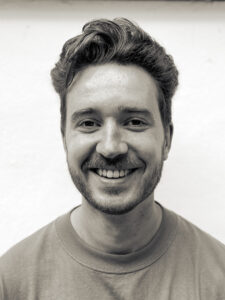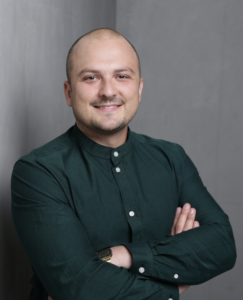Speakers
Joseph Barnby, PhD – Royal Holloway, University of London

Joseph Barnby is a cognitive and computational scientist focused on understanding the brain and behavior in social interactions, with applications in psychiatric and neurological disorders. He develops mathematical models and experiments to study cognitive processes like social decision-making and belief formation. Currently, he is an Assistant Professor at Royal Holloway, University of London, leading the Social Computation and Representation (SoCR) lab. He also holds adjunct research positions at King’s College London and the University of Western Australia and is the founder of the data science startup Hypatia.
Jaime de la Rocha, PhD – Institute for Biomedical Research August Pi i Sunyer (IDIBAPS) in Barcelona (Spain)

Jaime de la Rocha is a Junior Group Leader at the Institute for Biomedical Research August Pi i Sunyer (IDIBAPS) in Barcelona (Spain). He received his PhD in 2003 in Theoretical Physics in the University Autonoma of Madrid in the laboratory of Prof. Néstor Parga. After graduating, he obtained a postdoctoral fellowship from the Spanish government to work in the laboratory of Alex Reyes in the Center for Neural Science at New York University. There he performed in vitro experiments and computational modeling to investigate the transfer of synchrony in simple neural networks. In 2008 he moved to the Center for Molecular and Behavioral Neuroscience at Rutgers, where he worked in the lab of Ken Harris performing some in vivo population recordings and network modeling on the question of neuronal correlations and brain states. In 2010 he won a Ramón y Cajal position to start his lab in IDIBAPS in Barcelona where he combines behavioral experiments in rodents, electrophysiology, quantitative analysis and modeling to study the neural circuits dynamics underlying various cognitive functions such as perception and memory. In 2015 he became a permanent Junior Group Leader at IDIBAPS and won a consolidator grant from the European Research Council to investigate the mechanisms underlying expectations in perceptual decision making.
Mateusz Ambrożkiewicz, PhD – Charité-Universitätsmedizin Berlin, Germany

He began his scientific career with a degree in Biotechnology from the Warsaw Uniwersity of Life Science and early neuroscience research in Jacek Kuznicki’s lab. His passion led him to Germany, where he joined the Fast Track PhD Program at the Planck Research School, focusing on developmental neuroscience. His work with Nils Brose and Hiroshi Kawabe highlighted the importance of ubiquination in brain development. In 2016, he moved to Berlin to study molecular pathways in proteostasis in Victor Tarabykin’s lab. Now, he leds the Proteostasis Group at Charité University Hospital, advancing research on protein regulation in the brain.
Jan Antolik, PhD – Charles University in Prague, Czechia

Dr. Antolik is a computational neuroscientist based in Prague, Czechia where he lead the Computational Systems Neuroscience Group at the Faculty of Mathematics and Physics of Charles University. His main research interests are systems neuroscience, visual system, sensory coding and prosthetic sensory restoration. His work seeks to understand how visual information is transformed as it passes through the various stages of visual processing to form what we experience as our everyday perception of the visual environment.
Mark Hunt, PhD, DSc, Associate Professor – Nencki Institute of Experimental Biology, Warsaw, Poland

Mark Jeremy Hunt is a biomedical research scientist (PhD in pharmacology, University of Cambridge) and is currently an assistant professor at the Nencki Institute of the Polish Academy of Sciences. He has authored over 25 international peer-reviewed papers and has served as a reviewer for a number of international academic journals.
Otto Lappi, Doc. – University of Helsinki, Finland

Otto Lappi is a distinguished scientist who explores the complex cognitive and neural mechanisms behind everyday tasks that may seem simple at first glance. His work highlights the remarkable adaptability of the human brain – something that becomes especially apparent in the context of artificial intelligence and robotics, where even tasks like driving a car or walking can present enormous challenges. Otto also studies the development of expert skills, pushing the limits of human cognitive and physiological capacities. His research combines laboratory and field experiments, cognitive modeling, and qualitative methods.